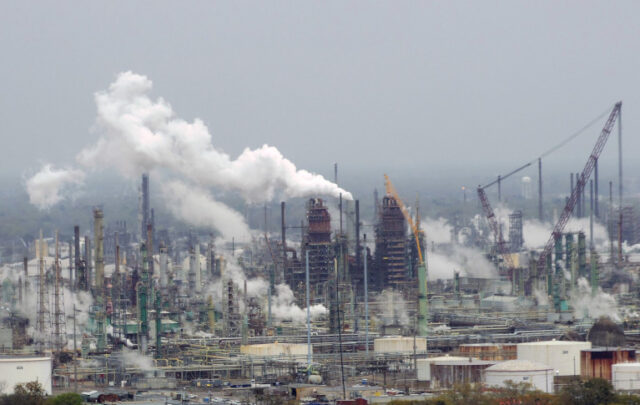Teutonic Hyperbole
Ilargi, The automatic earth
For a moment yesterday I was under the impression that Germany had stolen back -from his grave- Wernher Von Braun from NASA and made him drop a V2 rocket on Lower Manhattan. The headlines couldn’t have been more capped, bolded and exclamated if Japan had resurrected Godzilla and set him loose on Bowery Park.
German Political And Financial Leaders Have Taken Incompetence To A New Level, squeals Business Insider’s Joe Weisenthal, citing Bill O’Rourke. And: Stocks HAMMERED After Germany’s Giant Blunder. At the same digital once-promising rag, Gregory White, talking about Angela Merkel, asks: Does This Woman Have Any Idea What She’s Doing? The Telegraph’s Harry Wilson manages to add: Market chaos warning after German ban on shorting.
And there were many more Grand Utterances just like these. Stocks, according to many in this class of journalism, were HAMMERED, the euro PLUNGED, and general panic hit the streets and the markets. Grown up men shrieking like little 12 year old girls in damp underwear are never an attractive sight.
Stocks got hammered? Hardly. The Dow closed down just over 1% last night, the S&P less than 1.5%. The Euro lost about 1.5% or so. Red ink, for sure, but not even deep red. And surely not all that spectacular if you’re running a black swan plan by a crowd of shrieking suits, as Merkel did. Major European stocks were down 2-3% today, but the Euro actually recovered all of last night’s losses. And Wall Street opened slightly up, not armageddon-like down, and is off about 1% now. Gold, though, really gets pounded, way below $1200, so the very panic escape route is one that people retreat from, not flee into.
Tyler Durden at Zero Hedge, no stranger to “boldness” himself (or themselves?!) was at least right on one point: Berlin yesterday declared war on Wall Street (albeit without involving Von Braun). And on the City of London, not to forget, the proud European center of swaps and shorts.
But is that really so bad? And if so, for whom? For the public, or for the banks? See, what underlies these hyperbolic reactions to Germany’s announcement smacks an awful lot of Goldman CEO Lloyd Blankfein’s declaration that he and his firm were doing the “Work of God”, or at least that what’s good for Wall Street is good for Main Street. That’s what many of them like to think so much they get to believe it. But unless God wishes his people to be desperate, unemployed and homeless, developments on Wall Street and in Washington lend very little credence to that noble notion.
Don’t forget that, you know, just in case you’d forgotten, none of the main Wall Street or City banks would still be standing as they are today without trillions in public funds, and that these bailed out institutions deemed too-big-to-fail “lest the economy collapse” are now hugely profiting from bets directed essentially square against those same public funds, a practice that very realistically risks collapsing those same very real economies…
(2X April 2010)
U.S. Senate Approves Sweeping Wall St. Reform Bill
Kevin Drawbaugh and Andy Sullivan, Reutersvia Common Dreams
The U.S. Senate approved a sweeping Wall Street reform bill on Thursday night, capping months of wrangling over the biggest overhaul of financial regulation since the 1930s.
By a vote of 59-39, the Senate awarded a victory to President Barack Obama, a champion of tighter rules for banks and capital markets after a 2007-2009 financial crisis that slammed the economy and led to massive taxpayer bailouts.
The Senate bill must now be merged with a measure approved in December by the U.S. House of Representatives. Only then could a final package go to Obama to be signed into law, something that analysts said may happen next month.
Changes proposed in both bills — driven by lawmakers eager to look tough on Wall Street before congressional elections in November — threaten to constrain the banking industry and reduce its profits for years to come.
Flashpoints in the House-Senate negotiations will likely include a controversial proposal to curb bank swap-trading.
Obama said the final version of the bill would hold financial firms accountable but not stifle the free market.
“Over the last year, the financial industry has repeatedly tried to end this reform with hordes of lobbyists and millions of dollars in ads, and when they couldn’t kill it they tried to water it down. . . . Today, I think it’s fair to say these efforts have failed,” Obama said.
“We’ve still go some work to do,” he added. “The House and the Senate will have to iron out the differences between the two bills. And there’s no doubt that during that time the financial industry and their lobbyists will keep on fighting.”..
(21 May 2010)
A Bear Market by Any Other Name
Randall Forsyth, Barron’s
A ROSE BY ANY OTHER NAME would smell as sweet, Shakespeare wrote. But calling what my dogs leave on the lawn roses won’t make it smell like flowers.
Neither is the stock market fooled by labels. The rah-rah crowd is calling this swoon a “correction,” which by implication puts the market back on course to predestined encounter to ever-higher highs.
But some market veterans, who call a rose a rose and a spade a spade, aren’t mincing words.
The primary bear market is resuming, writes Richard Russell, publisher of the Dow Theory Letters, in his daily note on his Web site to subscribers.
Though market veterans say the market makes the news, not that the news makes the market, there was plenty of bad news on which to pin the 4% plunge in the major equity averages Thursday.
To be sure, the European sovereign debt crisis shows no resolution despite the nearly-$1 trillion bailout package from the European Union and the International Monetary Fund. The euro remains under extreme pressure, falling through $1.2150 before rebounding sharply on unsubstantiated rumors of central-bank intervention during the afternoon in New York (by which time European markets were closed), to back above $1.25 by early Friday in Asia.
The European market fragility was only exacerbated by Germany’s unilateral curbs on naked short sales, which included the purchase of credit default swaps. Deprived of that source of protection, traders only wanted out and to raise cash.
The curbs on CDS only served to fan the concerns about some European banks, which continue to plague the funding markets. The London interbank offered rate paid by different banks continues to vary widely, Zerohedge.com points out. French bank Societe Generale paid 0.72% for three-month money at the high end of the British Bankers Association Thursday poll, fully half again as much as 0.48% offered by UBS of Switzerland.
Meanwhile, the latest batch of U.S. economic data again was weaker than economists’ forecasts, notably a 25,000 jump in new claims for unemployment insurance. That follows other indicators that point to renewed weakness along with falling inflation.
None of which came out of the blue Thursday. The steady parade of soft economic numbers and deflationary signs from the commodities market has been pushing Treasury yields sharply lower for more than a month now. The benchmark 10-year note finished in New York at 3.21%, a huge drop from just over 4% in early April.
The only new news was the Senate’s passage of financial regulatory reform, which had been in the works for weeks but stalled until Thursday. Not surprisingly, financials led the market’s retreat. But the losses extended across all sectors, with technology hit hard.
Thursday’s drop took approximately $500 billion from the value of U.S. equities, according to the Wilshire 5000 Total Market Index. This measure, the broadest one of the U.S. market, has been down five of the past six days for a cumulative loss of about $1.3 trillion. Since the recent high of April 23, the losses total $1.8 trillion or 12.4%.
Whatever the explanations proffered for the market’s action, Russell declares, “The curse, it is cast.”..





